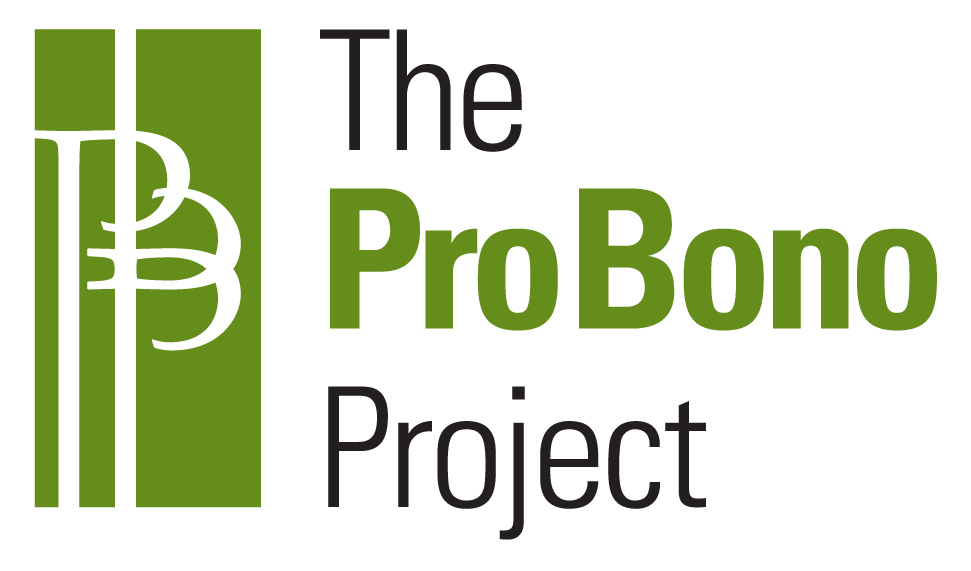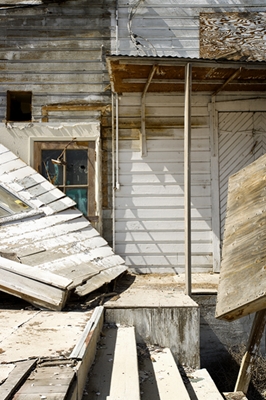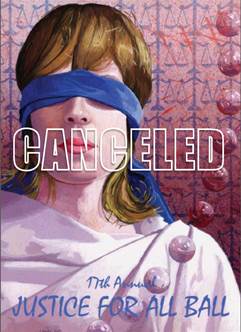It was August 29, 2005 when the winds howled, the rain came and panic ensued – a lady named Katrina blew through like a woman scorned. When it was over, the City of New Orleans was underwater and news headlines around the world told the story of ‘the perfect storm,’ which had once been predicted only in ‘what if’ scenarios. In its wake, it exposed the many tiny cracks in the façade of our charming city in very ugly ways. But in true Mardi Gras fashion, the parade must roll … and so the recovery and rebirth began.
— From Hurricane Katrina: The Aftermath, published August 20, 2015
Hurricane Katrina upped the ante for The Pro Bono Project and for the Justice For All Ball going forward. The need for civil legal services grows a little bit every year. Aging, population shifts, economic downturns, and a host of other factors influence how many people might need pro bono civil legal services.
But, Katrina did something to The Project that few other external factors had ever done - it exponentially raised the number of individuals requiring pro bono civil legal services. Two types of cases pushed The Project to its limits during the aftermath of both Katrina and Rita: succession and divorce. Behind the scenes, as the city went through a physical recovery, there lay a morass of legal entanglements that hindered many individuals and families from returning to the city.
Overnight, successions became a top priority for the city and for The Project. So many of those who had been displaced by Katrina did not have clear title to their homes. They could not collect insurance money or Road Home funds. Homes had been passed from generation to generation without going though the legal succession process. Now, two, three, or more generations later, the home was still in the name of the person who built or purchased the property - they were no longer alive but they were still the title holder. What a mess!
Divorce was not far behind. Katrina had a cathartic effect on many people. Couples who had stayed together for the children or financial reasons, suddenly realized that life is too short and too uncertain, especially living right smack in the middle of ‘hurricane central,’ to be in a bad or unhappy marriage. This dose of reality hit The Project like the floods that engulfed the city.
Couple all of this with the fact that The Project’s volunteers, like many others, were spread across the country waiting for homes and offices to be renovated. It left The Project short on volunteers with cases piling higher everyday. The ABA Center for Pro Bono, law firms, solo-practitioners, and law schools came to the rescue, sending lawyers, law students, and their law professors to do what they could to help manage the unending case load.
Not only did Katrina uncover the cracks in the foundations of the city’s levee protection - it revealed the enormity of hidden legal problems, which could paralyze the civil court system in metro New Orleans.
While much of the work around Katrina-related cases has settled down, it put The Project on notice. As a result, the Justice For All Ball and the funds it raises became even more important in making certain that should another Katrina befall the metro area, The Project might be well prepared.
To learn more about all that went on in the aftermath of Katrina and Rita, see the Katrina retrospective article - Hurricane Katrina: The Aftermath.
You can help us prepare for whatever might influence our caseload and continue to fulfill our mission of providing civil legal services to those in a six-parish area who need representation and cannot afford a lawyer by attending the JFAB.
Celebrate more than just our JFAB Big 30 by purchasing sponsorships or tickets at JFAB 2018 or, if you can’t attend, by making a donation at DONATE JFAB.
If you have pictures from the early years of the JFAB, 1989 to 2004, please send them to CC Kahr. Likewise, if you have a client or JFAB story to share, please send it to CC Kahr


